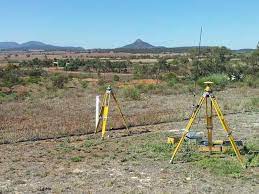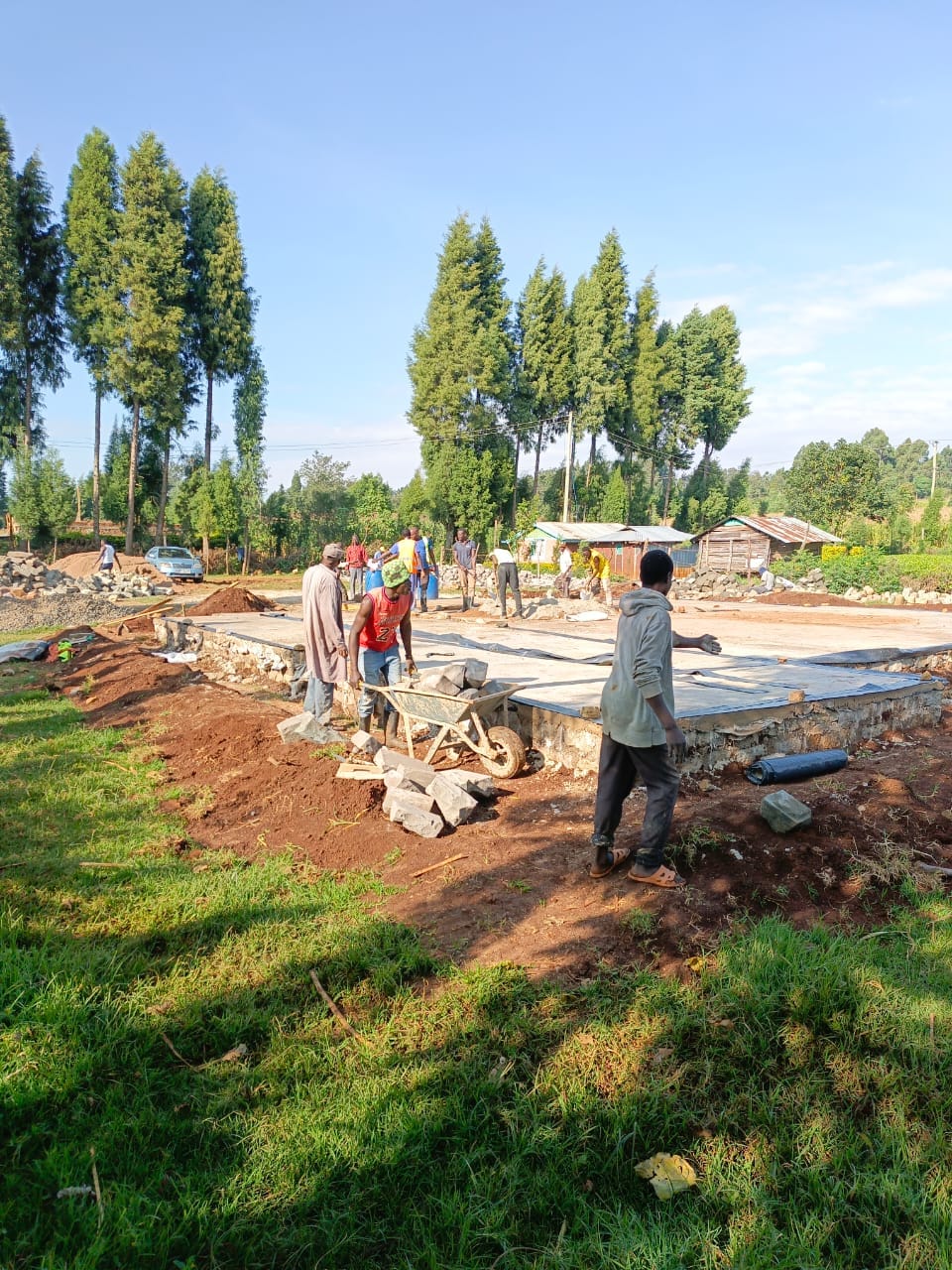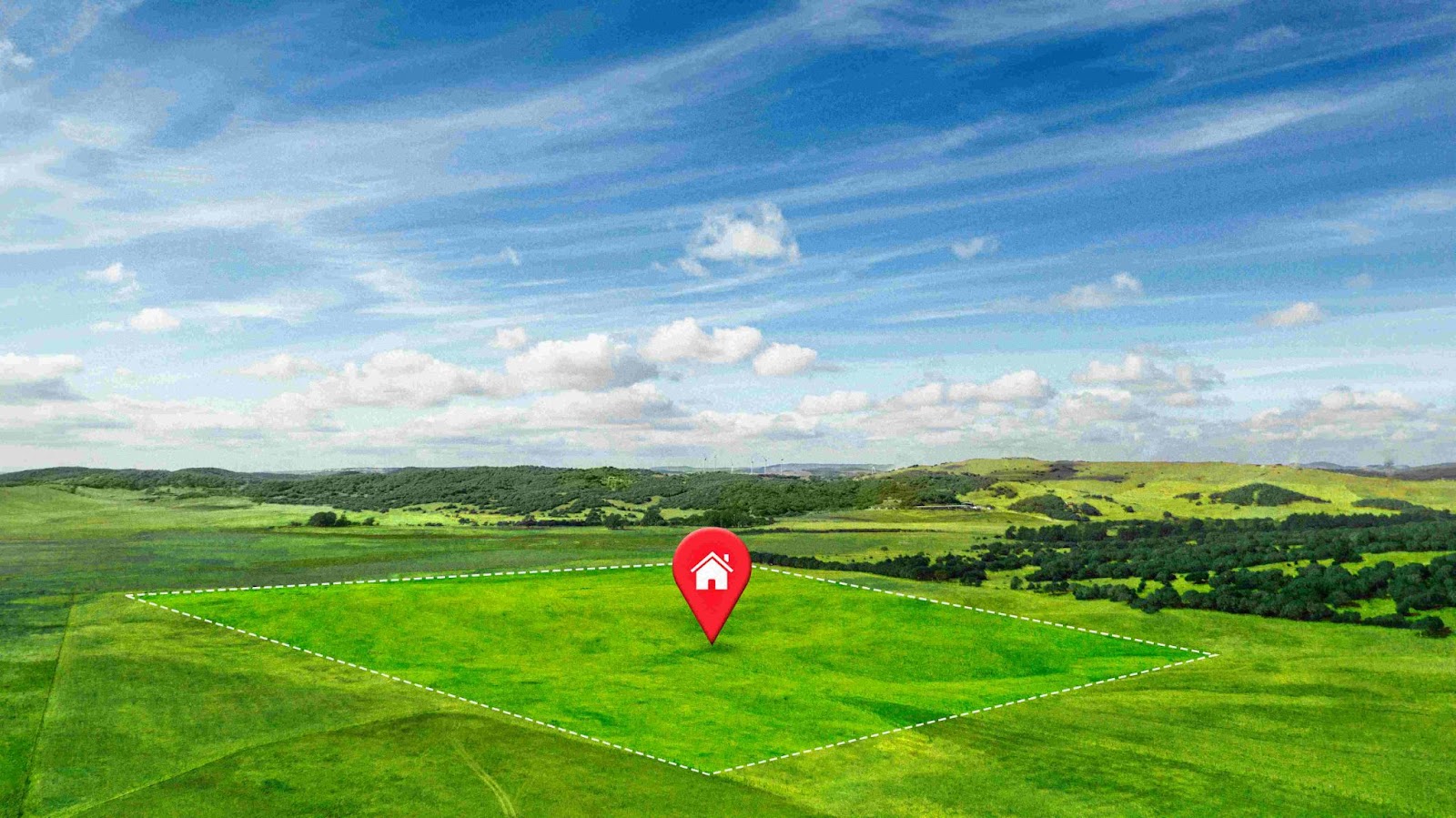Why You Need a Clear Process in the Land Buying Process in Kenya
Buying land in Kenya is a big investment, but it can also be risky if you skip important steps. The land buying process in Kethe nya requires careful checks, approvals, and documentation. A clear process protects you from fraud, title disputes, and costly mistakes.
Common Pitfalls in Land Transactions (Fraud, Title Duplication, Boundary Disputes)
Many buyers lose money because they don’t verify the land properly.
Some common issues include:
- Fraudulent sellers – fake or multiple sales of the same land.
- Title deed duplication – fake or forged titles that look genuine.
- Boundary disputes – unclear surveys leading to fights with neighbours.
- Hidden caveats or loans – land used as security with unpaid debt.

How a Proper Process Protects Your Investment(use Cases & Mini-Case Study)
Following the right land buying process in Kenya keeps M-Pesa safe and gives you peace of mind. For example, Doing a land search on ArdhiSasa confirms ownership and encumbrances.
Consulting a licensed surveyor ensures boundaries match the title deed. Seeking Land Control Board consent makes agricultural land transfers legal.
Using a lawyer and escrow account protects your payment until the transfer is complete.
Mini-case study: A buyer in Nairobi almost lost KSh 2M to a fraudulent M-Pesa. Because he first conducted a title search and involved a lawyer, the fraud was detected early. He walked away safely.
Quick Overview — Land Tenure & Key Institutions in Kenya
Before starting the land buying process in Kenya, it’s important to understand how land tenure works and which institutions regulate ownership. This helps you know the type of rights you are buying and which approvals you will need.
Freehold vs Leasehold vs Public/Trust/Community Land
Kenya recognises several types of land ownership:
Freehold land – gives the owner absolute rights over the land, with no time limit.
Leasehold land – ownership is granted for a fixed term (commonly 33, 50, or 99 years). Renewal requires government approval.
Public land – owned by the government for public use (roads, schools, parks).
Trust or community land – held by county governments or communities on behalf of residents.
Role of the Lands Registry, National Land Commission & Land Control Boards (LCB)
When buying land in Kenthe ya, you’ll interact with key institutions:
Lands Registry – maintains records of ownership, transfers, and encumbrances.
National Land Commission (NLC) – manages public land and oversees compliance.
Land Control Board (LCB) – must approve transactions involving agricultural or controlled land before transfer.

These bodies ensure the process is legal and transparent, protecting both buyer and seller.
Internal link tip: Link to your section on “Approvals and Consents in Land Purchase” for step-by-step guidance on LCB consent.
Recent reforms in Kenya have made land transactions more digital and transparent:
ArdhiSasa platform – allows online title of the arches, transfers, and payments in Nairobi and select counties.
Digitisation of records reduces fraud by phasing out manual searches.
Stricter oversight – government agencies now cross-check land tax compliance before transfers.
These changes mean buyers must be extra careful with digital processes, but also benefit from faster searches and better fraud detection.
Internal link tip: Connect to your article on “How to Do a Land Search in Kenya (ArdhiSasa & eCitizen)” for practical steps.
Pre-purchase Phase: Define Goals & Budget
Every successful land buying process in Kenya begins with clear planning. Before looking at plots or negotiating prices, you need to know why you’re buying and what you can realistically afford.
Purpose: Residential, Agricultural, Commercial, Speculative
The purpose of buying land in Kenya determines the approvals and checks you’ll need.
Residential – land for building homes or rentals.
Agricultural – farming or livestock use; requires Land Control Board (LCB) consent.
Commercial – for shops, offices, or industrial development; may need a change of neighbours’ agricultural.
Speculative investment – buying to hold for price appreciation.
Internal link tip: Link this to your guide on “Change of User Process in Kenya” for buyers shifting from agricultural to residential/commercial.
Related post: How to Maximize Rental Income from Apartments in Nairobi (2025 Guide)
Hidden Costs to Budget For
The purchase price is only one part of the cost of buying land in Kenya. Hidden charges often surprise first-time buyers:
Legal fees – advocate’s fee for the sale agreement and transfer.
Survey costs – pegging, boundary verification, certified maps.
Valuation fees – government or private valuer.
Stamp duty – usually 4% in urban areas, 2% in rural areas.
Land rates and rent – clearance certificates must be obtained.
How to Choose Location: Access, Utilities, Riparian Concerns, Flood Risk
Location affects both the value and safety of your investment. Before committing: Check road access and distance to schools, hospitals, and markets. Confirm availability of utilities such as water, power, and internet. Avoid plots on riparian land (near rivers, lakes, wetlands), which may be repossessed by the government. Investigate flood risk zones and soil quality for construction.
Search & Verification (Due Diligence) — Step-by-Step
One of the most important stages in the land buying process in Kenya is due diligence. This step confirms ownership, ensures there are no disputes, and protects you from fraud before you pay a single shilling.
How to Do a Title/Land Search (ArdhiSasa vs eCitizen vs Physical Lands Registry)
A land search reveals the registered owner and any restrictions. Today, you can use:
ArdhiSasa platform acknowledgement in Nairobi and some counties for online searches.
eCitizen portal – links to Ministry of Lands services where applicable.
Physical Lands Registry – manual search in counties not yet digitised.
Always keep a certified search copy for your records.
How to Verify the Tita le Deed Is Genuine (Red Flags, Serial Number Checks, Copy vs Original)
Fraudulent or duplicated title deeds are common scams. Protect yourself by:
Cross-checking the title deed number against the Lands Registry records. Examining the seal, watermark, and paper quality of the title. Comparing the copy from the seller with the certified copy from the registry. Watching for suspicious urgency from sellers pushing for fast payment.
Checking for Caveats, Charges, Leases, Court Cases and Encumbrances
A land search also shows whether the property is under legal restriction. Look out for:
Caveats – third-party claims on the land.
Related post: Why Choose a 3-Bedroom Maisonette Plans with Balcony
Charges or mortgages – land used as security by a bank.
Long-term leases – especially if someone else holds occupation rights.
Court orders – ongoing disputes blocking transfer.
Never proceed if the land is encumbered until issues are cleared.
Internal link tip: Link to a future article on “How to Handle Encumbered Land in Kenya.”
Confirming Land Rates & Rent Clearance Certificates
Counties and the national government charge land rates (urban plots) and land rent (leasehold property). Before transfer:
Request an official clearance certificate.
Ensure all arrears are fully paid by the seller. Confirm payment receipts match the property reference.
Confirming Utilities, Road Access, and Servitudes (Wayleaves)
Beyond paperwork, check if the land has:
Road access – avoid landlocked plots.
Water and electricity connections – or the feasibility of installing them.
Wayleaves/servitudes – e.g., power lines, sewer lines, or public paths cutting through the land.
These factors affect usability, value, and future resale.
Internal link tip: Link this to your “How to Choose Location When Buying Land in Kenya” section for continuity.
Related post: The Kenya real estate sector has come of age
Survey & Physical Verification
After confirming ownership, the next step in the land buying process in Kenya is to physically verify the property. This ensures the land on paper matches the actual ground location and boundaries. Skipping this step can expose you to costly disputes later.
Procuring and Verifying the Survey Plan / Certified Map (Role of Licensed Surveyor)
A survey plan (or certified map) defines the exact dimensions and location of the plot. To protect yourself: Engage a licensed surveyor registered with the Institution of Surveyors of Kenya (ISK). Obtain a certified copy of the survey plan from the Survey of Kenya. Compare the plan against the Registry Index Map (RIM) at the county survey office.
Boundary Pegging, Encroachment Checks, GPS Verification
Boundaries are critical to avoid conflicts with neighbours. A surveyor will: Peg the boundaries clearly using beacons.
Check for encroachment by neighbours or road reserves. Use GPS equipment to confirm location accuracy. Document findings in a written report for the buyer.
Red flag: If beacons are missing or tampered with, request fresh re-pegging before purchase.
What to Do When Survey Plan Differs from Title Description (Resolution Steps)
Sometimes, the survey map doesn’t fully match the title deed description. In such cases, The surveyor files a report highlighting discrepancies. You (or the seller) may request re-surveying from the Survey of Kenya.
For serious errors, seek correction through the Lands Registry. If disputed, the case may escalate to the Land and Environment Court. Never proceed with transfer until all inconsistencies are corrected and documented.
Approvals & Consents
An important part of the land buying process in Kenya is obtaining the right consents and approvals. Without them, your transaction may be declared invalid even if you’ve already paid.
Land Control Board (LCB) Consent: Who Needs It, Docs, Timeline and Reasons for Refusal
For agricultural land transactions, the Land Control Board (LCB) must approve the sale within six months of the agreement.
Key details:
Who needs it: Buyer and seller (for agricultural, leasehold, and rural land).
Documents required: Sale agreement, title deed copy, IDs, and KRA PINs.
Timeline: Applications processed during monthly board sittings.
Typical refusals: Land below minimum acreage, family objections, or pending disputes.
Without LCB consent, the sale agreement becomes void.
Internal link tip: Link to your “Step-by-Step Guide to LCB Consent in Kenya” for a deeper breakdown.
Spousal Consent & Family Consent Where Required
The Matrimonial Property Act requires spousal consent when selling jointly owned land or property used as a matrimonial homespecialiseonfirm spousal signatures on the transfer documents. In customary or family-owned land, family consent may also be necessary to avoid later disputes. Lack of consent can trigger court nullification of the transfer.
Internal link tip: Connect to “Matrimonial Property & Land Rights in Kenya” for further reading.
County Planning, Change of Use and Zoning Checks
For urban or peri-urban land, county approvals may be needed before purchase or development:
County zoning checks – verify land use category (residential, commercial, industrial).
Change of user applications – required if converting agricultural land to residential or commercial.
Planning restrictions – check if the area has building height limits, road expansion reservations, or riparian restrictions.
Valuation, Stamp Duty & Taxes (Practical Walkthrough)
Taxes and valuations are a non-negotiable part of the land buying process in Kenya. Understanding how they work prevents costly delays and ensures your transfer is legally registered.
Role of the Government Valuer vs Private Valuation
Government valuer: Conducts official valuation to determine stamp duty. The transfer can’t proceed without this.
Private valuer: Hired by buyers or sellers for guidance on market value. Useful for negotiation but not binding for tax purposes.
How Stamp Duty is Calculated (Urban vs Rural) + Worked Examples.
Stamp duty in Kenya is calculated as a percentage of the government valuation, not the sale price.
Urban land – 4%
Rural land – 2%
Example 1: Buying urban land valued at KSh 3,000,000 → Stamp duty = KSh 120,000 (3,000,000 × 4%).
Example 2: Buying rural land valued at KSh 1,500,000 → Stamp duty = KSh 30,000 (1,500,000 × 2%).
Always budget slightly higher, since under-declaration can trigger penalties.
Who Pays What (Buyer vs Seller) and Payment Receipts to Retain
Buyer: Pays stamp duty, registration fees, legal fees, and survey costs.
Seller: Pays for land rates/rent clearance, consents, and capital gains tax.
Both parties: Share incidental costs like copies and courier fees.
Important: Always retain payment receipts (KRA iTax acknowledgements, Lands office slips) for future proof of compliance.
Capital Gains, Income Tax, and Land Rates Obligations Post-Purchase
Capital Gains Tax (CGT) – Seller pays 15% of profit made from the sale.
Income tax – If land is subdivided and sold repeatedly, KRA may classify it as business income.
Land rates & rent – Buyer must keep them updated to avoid penalties or property auctions.
Negotiation & Drafting the Sale Agreement
A strong sale agreement is the backbone of the land buying process in Kenya. It protects both buyer and seller by clearly setting out the terms of the deal. Always engage a qualified advocate to prepare or review the contract.
Offer Letter / Letter of Intent — What to Include
Before drafting the full agreement, most transactions begin with an Offer Letter (Letter of Intent). This document shows serious intent, but is not the final contract.
It should include: Full names and contacts of buyer and seller. Land parcel details (title number, location, size). Proposed purchase price. Deposit amount and payment terms. Timelines for signing the sale agreement.
Key Sale Agreement Clauses
The advocate should ensure the sale agreement includes protective clauses such as:
Deposit & payment schedule – e.g., 10% deposit on signing, balance after registration.
Default clause – outlines penalties if either party fails to meet obligations.
Dispute resolution – arbitration or courts as final recourse.
Warranties & representations – seller confirms they have legal authority and no hidden encumbrances.
Completion documents – list of documents the seller must provide (title, consents, clearance certificates).
Avoid signing agreements prepared solely by the seller’s lawyer. Always have your own advocate review it.
Using Escrow, Trust Accounts, or Solicitors’ Client Accounts for Deposits — Pros & Cons
Deposits are risky if paid directly to the seller. Safer options include:
Escrow accounts – held by banks until conditions are met.
Trust accounts – funds released by the trustee (usually a lawyer) on completion.
Solicitors’ client accounts – money held by the advocate until the transfer is done.
Pros: Protects the buyer from fraud, ensures money only moves after due process.
Cons: Small extra fees, requires trusted institutions.
Payment Methods & Money Handling (Safety Tips)
Money handling is one of the riskiest parts of the land buying process in Kenya. Choosing safe and traceable payment methods protects you from fraud and gives you evidence if disputes arise later.
Bank Transfers, Bankers Cheques, M-Pesa — Traceability & Receipts
Always prioritise payment methods that create a paper trail:
Bank transfers – secure and provide official bank statements.
Bankers’ cheques – widely accepted, with easy confirmation by banks.
M-Pesa – useful for smaller amounts (like legal or survey fees), but ensure you download MPesa statements for record-keeping.
Avoiding Cash Payments; Documenting Every Transaction
Never pay in cash — it leaves no trace and makes refund claims nearly impossible. Ensure all payments are acknowledged in writing, with receipts signed by the seller or advocate. Keep copies of every bank slip, cheque stub, M-Pesa statement, and official receipt. Store digital copies (scans/photos) for backup.
Red flag: If a seller insists on cash-only payments, treat it as a major warning sign.
Transfer & Registration (Step-by-Step)
The final stage of the land buying process in Kenya is transfer and registration. This is where ownership officially moves from seller to buyer, and the new title deed is issued.
Lodging Transfer Docs at Lands Registry — What to Submit and Typical Timelines
Your advocate prepares and submits the following documents to the Lands Registry:
Duly signed transfer forms (Form L.R. 1 or relevant). Original title deed from the seller. Consent letters (LCB, spousal, county approvals).Land rates and rent clearance certificates. Stamp duty payment receipts.
Timelines: Registration usually takes 2–4 weeks, depending on the registry’s workload and whether ArdhiSasa or manual processes are used.
Handling Objections or Third-Party Caveats During Registration
Sometimes, third parties may lodge caveats or objections to block the transfer. This could be due to: Disputes over ownership. Pending succession cases. Creditors claiming land as collateral.
Resolution options: Negotiate and withdraw the caveat by consent. Apply to the Land Registrar for removal.
Seek orders from the Environment and Land Court if contested.
Never proceed with payment release until objections are cleared.
Issuance of New Title Deed and Collecting Certified Copies
Once registration is complete, the Buyer is issued a new title deed in their name. Request certified copies for safekeeping (useful when applying for loans or subdivision). Confirm that the land records in ArdhiSasa or the Lands Registry reflect the new ownership.
Pro tip: Always keep the original title deed in a secure place (e.g., bank safe deposit).
Post-Purchase: Protecting Your Land
Completing the transfer isn’t the end of the land buying process in Kenya. To safeguard your investment, you must take steps to secure, maintain, and prepare the land for future use.
Update Land Rates, Pay Taxes and Secure Receipts
Land rates (county government) and land rent (national government for leasehold plots) must be kept up-to-date. Always request clearance certificates and official receipts. Keep a file (digital and physical) of all annual payments to avoid penalties or repossession.
Physical Security: Pegging, Fencing, Community Liaison
Re-peg boundaries with your surveyor to prevent encroachment. Fence the land (live fence, chain-link, or barbed wire) to show active ownership.
Build good relations with neighbours and local community leaders, who can help monitor for illegal occupation. Idle, unfenced land is at high risk of squatters or boundary disputes.
When & How to Develop: Building Permits, EIA (if Required)
If you plan to build: Obtain a building permit from the county government. For commercial or large projects, apply for an Environmental Impact Assessment (EIA) through NEMA. Confirm compliance with zoning regulations before starting construction.
Pro tip: Even simple developments (like a caretaker’s house or borehole) should be documented and approved to avoid future demolition notices.
Advantages and Disadvantages of 4-Bedroom Flat Roof House Plans in Kenya
Special Scenarios (Short Guides)
Not every land buying process in Kenya follows the same path. Depending on who you’re buying from or your unique situation, extra checks and precautions are necessary.
Buying Land from Developers vs Private Sellers — Extra Checks
Developers: Verify company registration, subdivision approvals, mother title, and genuine change-of-user approvals.
Private sellers: Confirm succession (if inherited), spousal consent, and that they’re the actual titleholder.
Always confirm infrastructure promises (roads, water, power) in writing.
Buying on Instalments (Conditional Sale Agreements) — Risks & Protections
Buying land in Kenya via instalments is common but risky without safeguards:
Ensure a conditional sale agreement outlines the deposit, the instalment plan, and the default consequences. Confirm the title stays in the seller’s name but is secured by a caveat/charge until full payment. Avoid paying instalments directly to agents without legal acknowledgement.
Red flag: Some sellers resell plots if instalments stall. Always use escrow or advocates’ accounts.
Buying Land as a Foreigner or Diaspora — Restrictions and Required Steps
Foreigners cannot own freehold land in Kenya; they can only lease for up to 99 years. Diaspora buyers should use a Power of Attorney or a trusted advocate to handle transactions locally. Always insist on independent verification — don’t rely only on relatives or brokers.
Co-Ownership, Family Land & Inheritance Issues — Resolving Conflicting Claims
For family or inherited land, ensure succession has been completed and a new title issued. With co-ownership, all parties must consent to the sale (signatures required). Disputes should be resolved through mediation or the Environment and Land Court before purchase.
Never buy land with ongoing family disputes, however attractive the price.
Timeline & Cost Summary (Downloadable)
One of the most common concerns during the land buying process in Kenya is how long it takes and what it will cost. While timelines vary, having a clear estimate helps buyers plan better.
Typical Timeline at Each Step (Best/Worst Case) — Visual Flow Diagram
Pre-purchase planning & budget: 1–2 weeks.
Search & verification (title, rates, encumbrances): 1–3 weeks.
Survey & physical verification: 1 week (best) to 3 weeks (worst, if disputes arise).
Approvals & consents (LCB, spousal, county): 2–6 weeks.
Valuation & stamp duty processing: 2–4 weeks.
Transfer & registration: 2–4 weeks. Best case: 2–3 months. Worst case: 6+ months (if disputes, delays, or missing documents).
Sample Cost Guide (Legal Fees, Valuation, Stamp Duty, LCB Fees, Surveyor)
When budgeting for the land buying process in Kenya, here are the typical costs you should expect:
Legal fees: Usually 1–2% of the purchase price, negotiable but capped by the Advocates Remuneration Order.
Stamp duty: Charged at 2% for rural land and 4% for urban land, calculated on the government valuation.
Valuation fees: Range between 0.25–1% of the land value, depending on the valuer and size of the property.
Surveyor fees: Between KES 30,000–80,000, covering pegging, re-survey, or certified maps.
Land Control Board (LCB) consent: Around KES 1,000, a statutory payment to the Land Control Board.
Land rates or rent clearance: This varies by county, but must be settled by the seller before transfer.
Note: Costs may differ depending on the county, advocate, or size of the land. Always confirm the exact figures before committing to a purchase.
Printable Due-Diligence Checklist (Lead Magnet / CTA)
To help buyers stay organized, offer a free downloadable checklist covering: Title search & verification steps. Required consents (LCB, spousal, county).
Survey & boundary checks. Tax & fee payments (stamp duty, legal, valuation). Final registration & post-purchase tasks.
CTA: “Download your free Land Due-Diligence Checklist (PDF) here before buying land in Kenya.”
The Ultimate Topnotch 4 Bedroom Bungalow House Plans in Kenya
Mistakes to Avoid, Red Flags & How to Spot Scams
Quick Red-Flag Checklist
When buying land in Kenya, watch out for these common warning signs:
Fake or forged titles — mismatched serial numbers, photocopies instead of originals.
Unverifiable seller identity — seller cannot prove ownership or has inconsistent documents.
Rushed sales — pressure to pay before completing due diligence, “today-only” offers.
Encumbrances hidden — disputes, loans, or court cases tied to the land.
Suspiciously low prices — if it looks too good to be true, it usually is.
What to Do if You Suspect Fraud
If you sense something is wrong during a transaction:
1. Pause immediately — stop all payments and transactions.
2. Verify documents again — cross-check with the Lands Registry through ArdhiSasa or physical search.
3. Engage a lawyer or surveyor — get professional verification before proceeding.
4. Report to authorities — file a complaint with the Directorate of Criminal Investigations (DCI) or the Ethics and Anti-Corruption Commission (EACC).
5. Alert your bank or mobile money provider — if funds were transferred, report quickly to flag suspicious transactions.
Related post: Designing and Constructing Modern 5-Storey Commercial and Apartment Buildings: A Blueprint for Success
Conclusion & Call to Action
Buying land in Kenya is a major investment. By following a clear, step-by-step process, you can avoid costly mistakes, protect your money, and secure genuine ownership. Remember: due diligence is not optional—it’s the foundation of safe land ownership.
One-Page Quick Checklist Download
To make your journey easier, we’ve prepared a free printable checklist that covers all key steps—from land search to registration. Download it and use it as a reference during your purchase process.
Offer Consultation / Lawyer Referral
Still unsure about the legal or technical details? We can connect you with vetted property lawyers and surveyors who specialise in Kenyan land transactions. Getting expert help early can save you time, money, and stress. Internal linking tip: Link this section to your Timeline & Cost Summary and Mistakes to Avoid sections, plus your consultation/CTA page





4 thoughts on “Land Buying Process in Kenya – Step by Step (2025 Guide)”
Comments are closed.